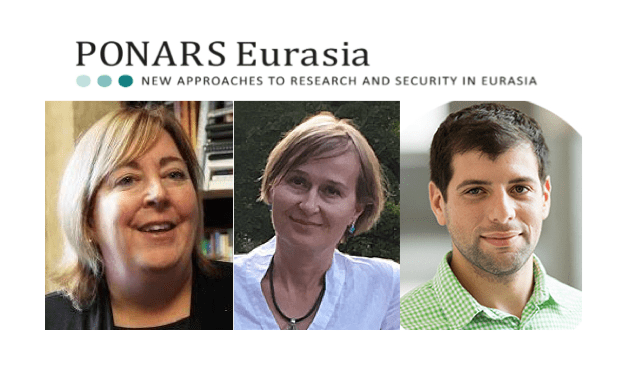The COVID-19 pandemic hit Russia at a precarious moment marked by a global oil war and constitutional reforms intended to secure regime stability beyond 2024. These three crises place significant pressure on the Putin system, defined by its focus on statism, international standing, and a power vertical that concentrates power within the national government. As in other federal systems, the Kremlin has responded to the challenge by outlining a decentralized response, resulting in a scramble in the central and regional governments to limit costs and evade blame. In this talk, Dr. Smyth, Dr. Sharafutdinova, and Dr. Model will discuss variations in regional threats and regions’ capacities to meet those threats across Russia. They will also assess the potential effects of de facto decentralization.
Regina Smyth is Professor of Political Science at Indiana University. She studies the evolution of state-society relations and state responsiveness in autocratic and transitional regimes, focusing on elections, protest, and legislative decision-making. Her most recent book, Elections, Protest, and Autocratic Regime Stability : Russia 2008-2020 is forthcoming at Cambridge University Press, November 2020. She holds a PhD in Political Science from Duke University.
Gulnaz Sharafutdinova is a Reader at King’s Russia Institute (King’s College London). Gulnaz is a leading expert on federalism and sub-national politics in Russia, and holds a PhD in Political Science from the George Washington University. She was born in Tatarstan, Russia, and still keeps tight connections to her homeland.
Timothy Model is a Havighurst Fellow at Miami University’s Havighurst Center for Russian and Post-Soviet Studies and the Department of Global and Intercultural Studies. He studies how corruption influences elite and mass behavior in authoritarian contexts, and holds a PhD in Political Science from Indiana University.

